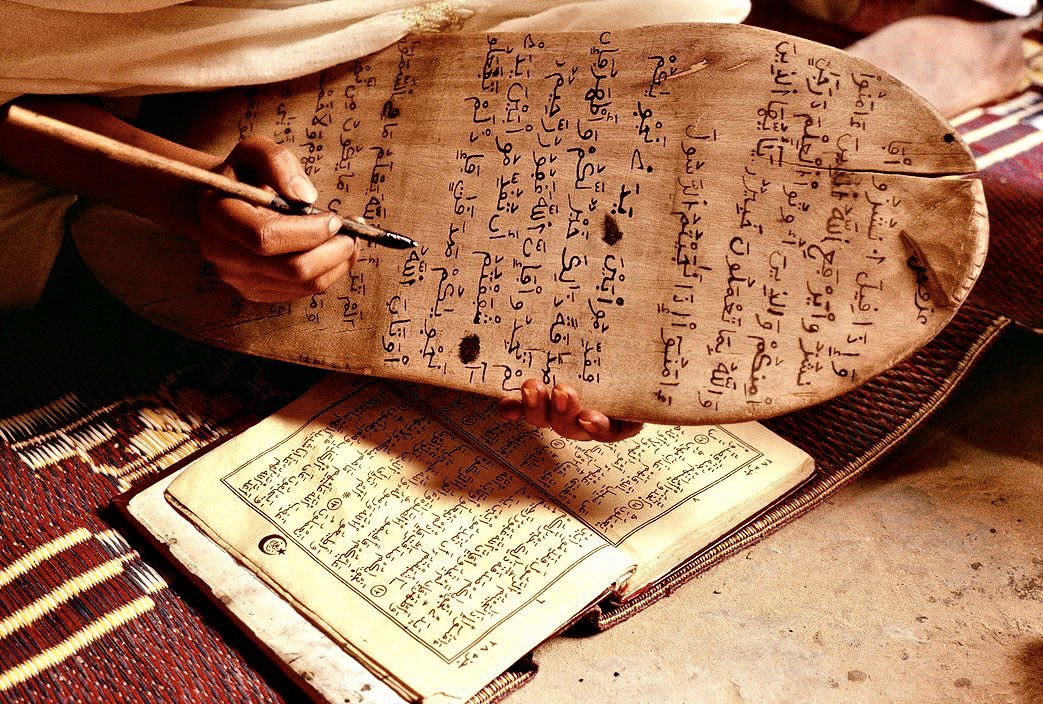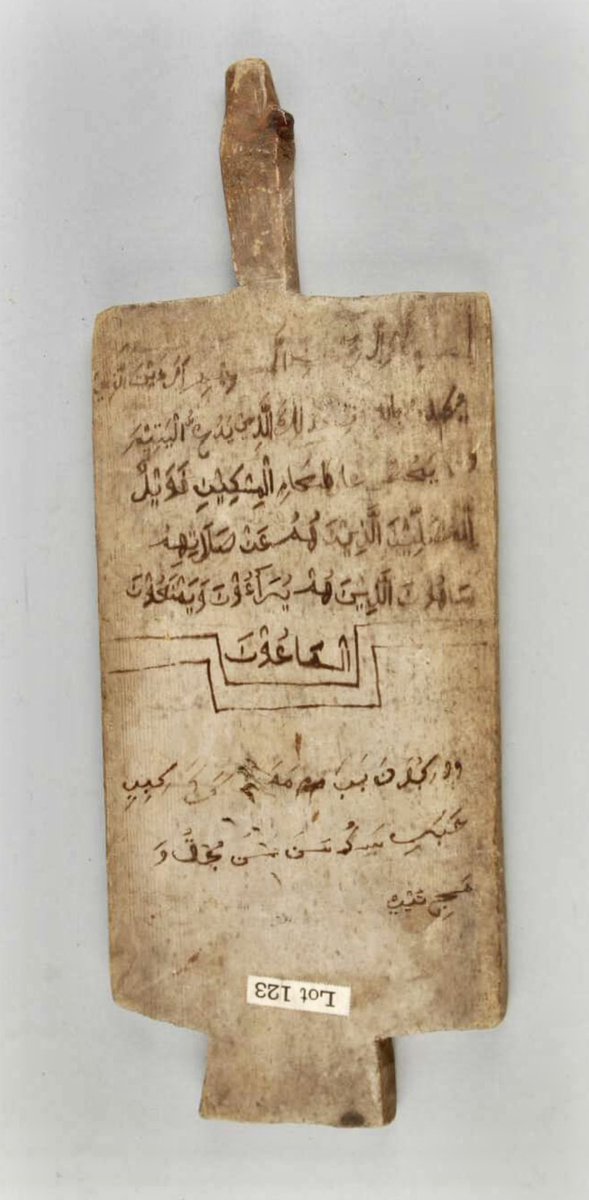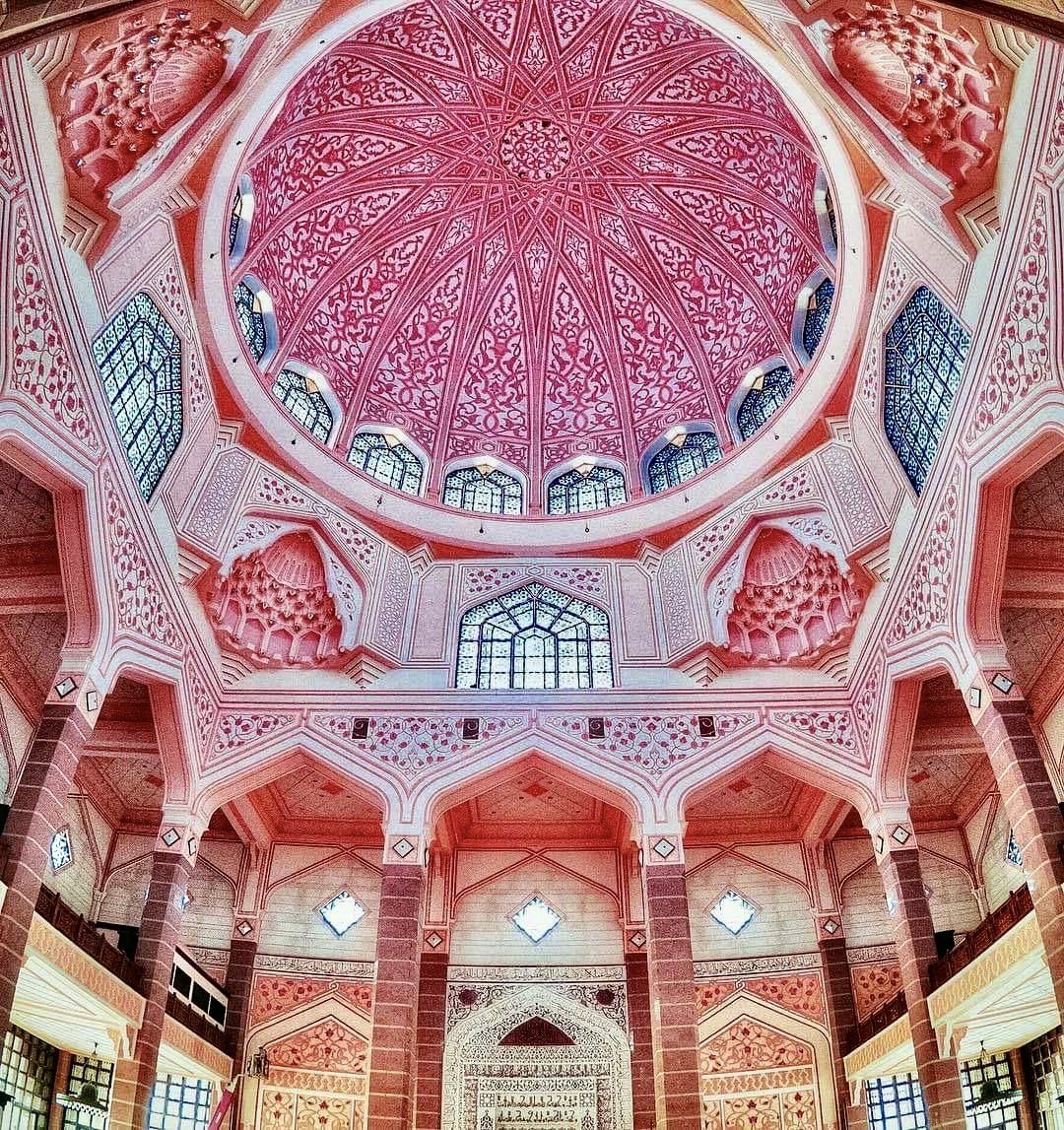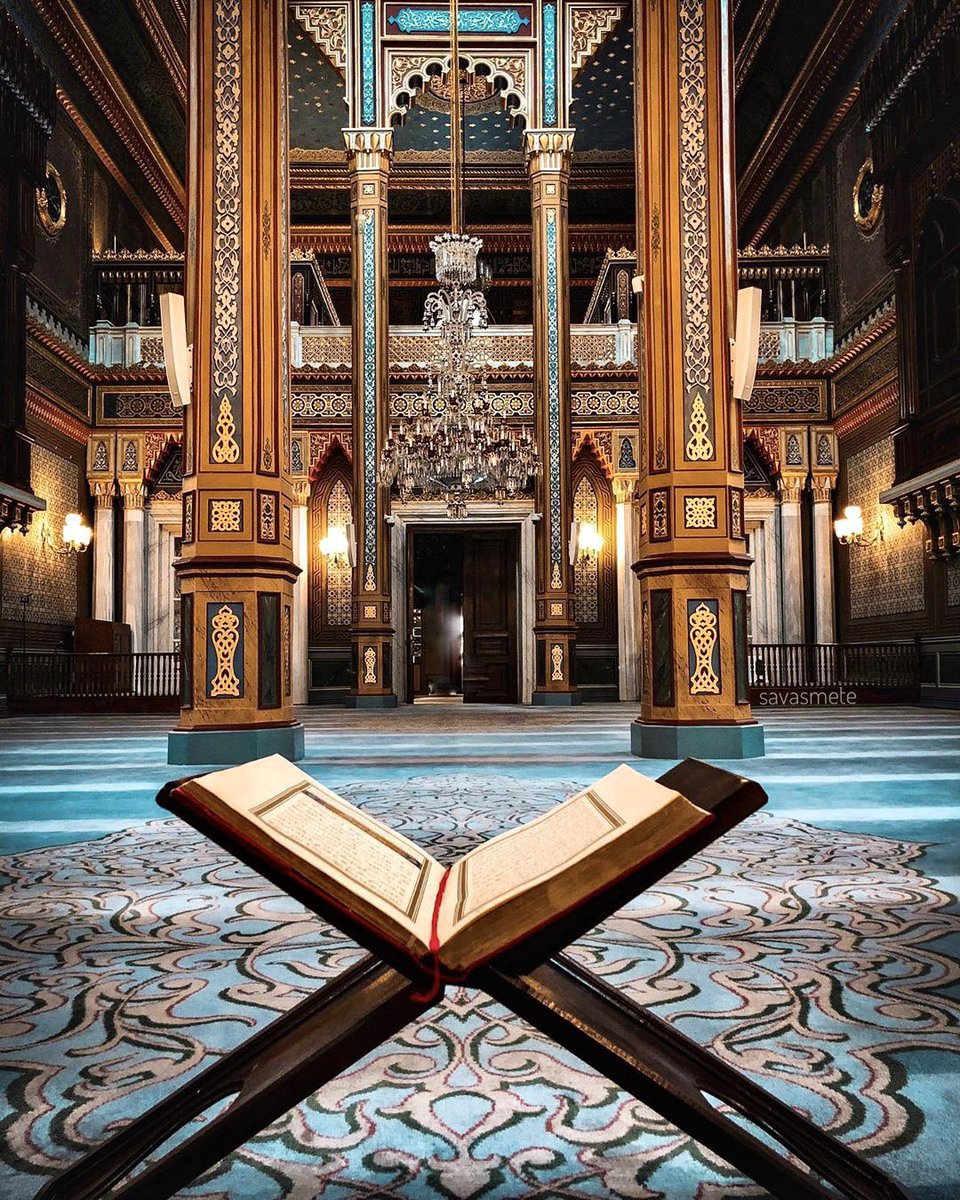In Africa, an ancient manuscript culture has survived into the present when studying the Qur’an. Students use wooden tablets to practice Arabic calligraphy, & to help them memorise Qur'anic verses.
A thread on the African tradition of memorising the Qur’an using wooden tablets…
A thread on the African tradition of memorising the Qur’an using wooden tablets…

1/ Teaching tablets are traditionally used in West and North African schools to help students learn the Qur’an. Writing on wooden boards is the traditional method for memorising the Quran. 

2/ Qur'an boards are used by students to write out extracts from the Qur'an or to practise their writing of particular verses - a bit like a slate and chalk. They are generally flat, rectangular & with a handle at one end - or both 

3/ The Quran is memorised by writing and re-writing a surah (chapter) on a wooden board. Because the child writes it out, the memorised verses are believed to be much stronger than in other methods. 

4/ They would then continue to memorise the lines written on the tablet from a chapter of the Qur'an by chanting them aloud with their fellow students
A Sudanese Sufi student holds his wooden board or Lawha as he recites verses of the Holy Qur’an, Sudan @SudaneseCulture
A Sudanese Sufi student holds his wooden board or Lawha as he recites verses of the Holy Qur’an, Sudan @SudaneseCulture

5/ Once a verse was memorised, water was used to wash the text off and the student could start again. The water used to wash the boards was treated with appropriate reverence given that it was believed to contain the words of Allah. 

6/ Also placing three dots after writing a verse was an ancient way of separating the verses
A student copies the Quran in Arabic in a religious school. (1988)
- A. Abbas
A student copies the Quran in Arabic in a religious school. (1988)
- A. Abbas

7/ These wooden writing boards are evidence and expression of devotion and discipline, and a connection to an international community connected by Arabic, the language of the Qur'an. 

8/ Prophet Muhammad ﷺ said قَيِّدُوا العِلمَ بالكِتاب, “Bind knowledge through writing (it down)” [Sahīh al Jāmi’ as-Saghīr 4434]. Knowledge is passed on through writing. When we write we are making a print and when we are sharing it, it seals our knowledge & ability to memorise 

9/ In Sudan, students historically used wood writing boards to practice their Arabic calligraphy and to help them memorise Qur'anic verses.
This Qur’an board from Sudan is in the @britishmuseum collection
This Qur’an board from Sudan is in the @britishmuseum collection

10/ Portrait of a child with the his wooden Qur’an board in front of great mud mosque in the Bani, in the tribal region of the Sahel, northern Burkina Faso 

11/ In North African villages local people still practice the traditional way of memorizing Quran. Students use hand-carved pens and ink made out of wool, using them to write verses from the Quran on wooden slates.
Watch the tools and techniques used:
Watch the tools and techniques used:
12/ These young students will continue using these methods until they have successfully memorised the entire Quran and will then use the same method to teach the next generation. 

• • •
Missing some Tweet in this thread? You can try to
force a refresh

 Read on Twitter
Read on Twitter





















